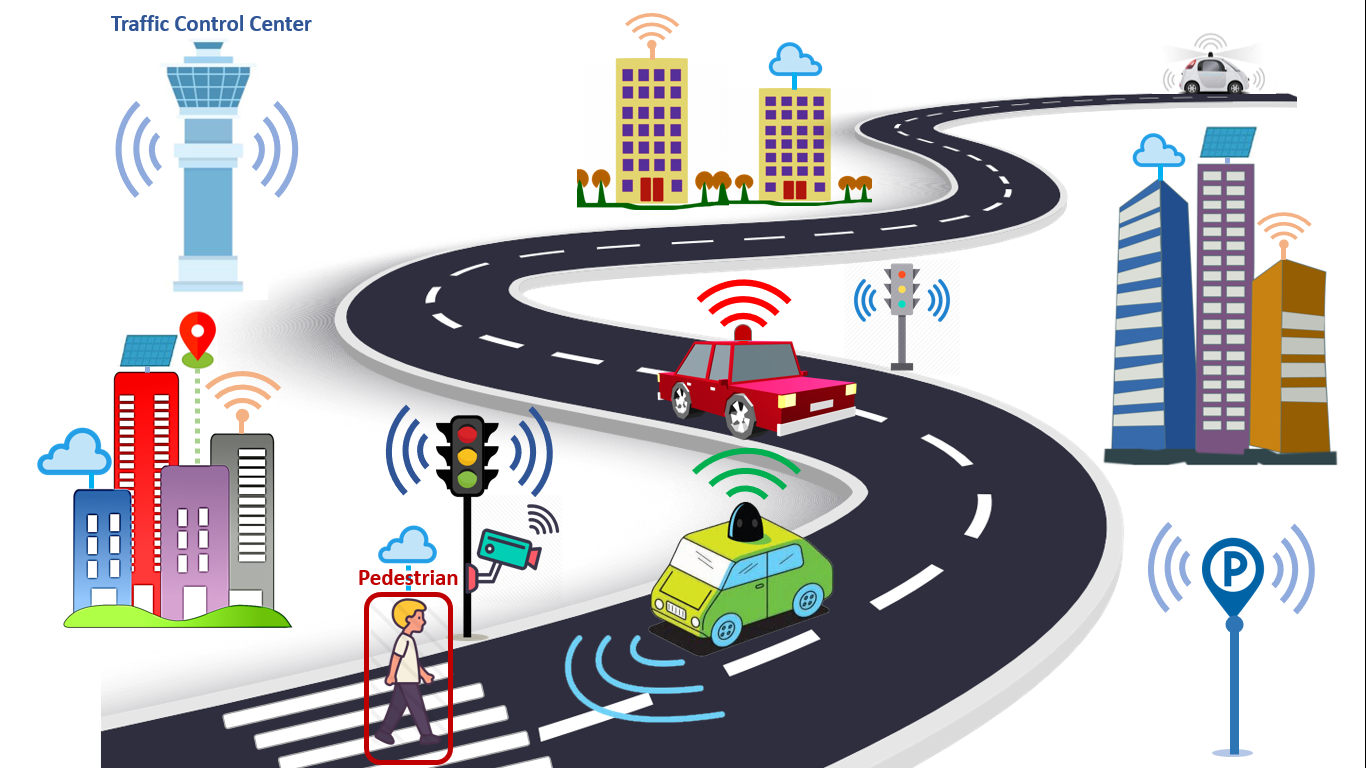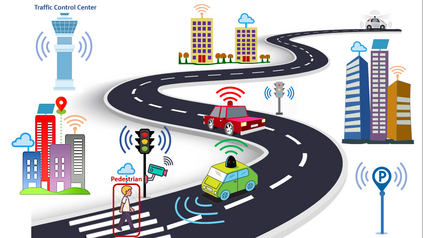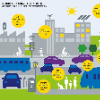Smart Cities and Communities (SCC) constitute a new paradigm in urban development. SCC ideates on a data-centered society aiming at improving efficiency by automating and optimizing activities and utilities. Information and communication technology along with internet of things enables data collection and with the help of artificial intelligence (AI) situation awareness can be obtained to feed the SCC actors with enriched knowledge. This paper describes AI perspectives in SCC and gives an overview of AI-based technologies used in traffic to enable road vehicle automation and smart traffic control. Perception, Smart Traffic Control and Driver Modelling are described along with open research challenges and standardization to help introduce advanced driver assistance systems and automated vehicle functionality in traffic. To fully realize the potential of SCC, to create a holistic view on a city level, the availability of data from different stakeholders is need. Further, though AI technologies provide accurate predictions and classifications there is an ambiguity regarding the correctness of their outputs. This can make it difficult for the human operator to trust the system. Today there are no methods that can be used to match function requirements with the level of detail in data annotation in order to train an accurate model. Another challenge related to trust is explainability, while the models have difficulties explaining how they come to a certain conclusion it is difficult for humans to trust it.
翻译:智能城市和社区(SCC)是城市发展中的一个新范例。SCC关于以数据为中心的社会的概念,旨在通过自动化和优化活动及公用事业来提高效率。信息和通信技术,加上各种事物的互联网,能够收集数据,并借助人工智能(AI)对情况的认识,为SCC行为者提供丰富的知识。本文描述了SCC中的AI观点,并概述了用于交通的AI技术,以便能够实现公路车辆自动化和智能交通控制。概念、智能交通控制和司机建模与开放的研究挑战和标准化一起被描述,以帮助引入先进的驱动器援助系统和自动化车辆交通功能。为了充分实现SCC的潜力,在城市一级创造整体观点,需要从不同利益攸关方获得数据。此外,尽管AI技术提供了准确的预测和分类,但是其产出的正确性是模糊不清的。这可能会使人类操作者难以信任系统。目前没有方法可以用来将功能要求与数据的详细程度相匹配,以便培训准确的模型。另一个挑战是如何解释信任的,而信任是如何解释的。在信任方面,信任是难以解释的。







